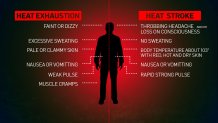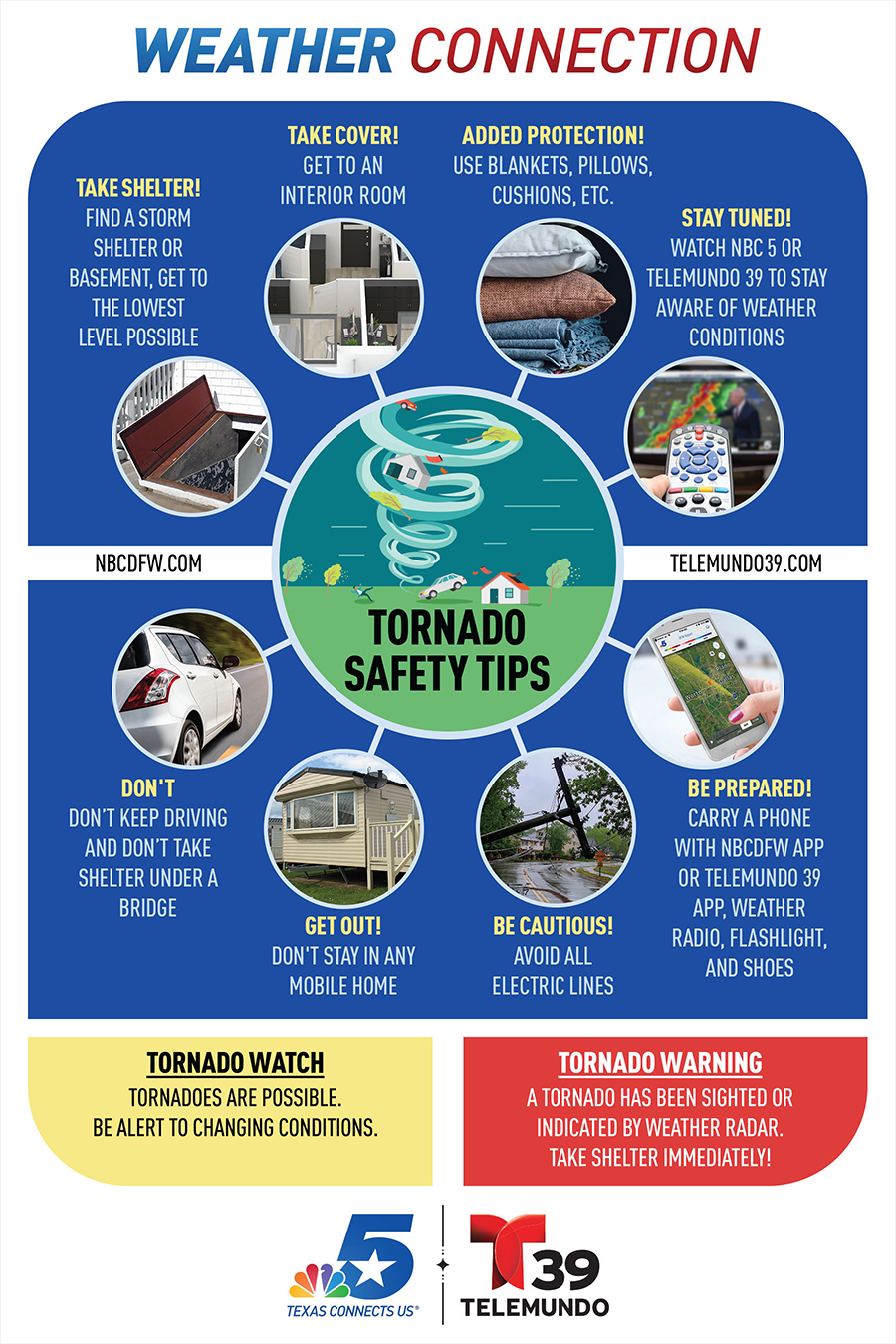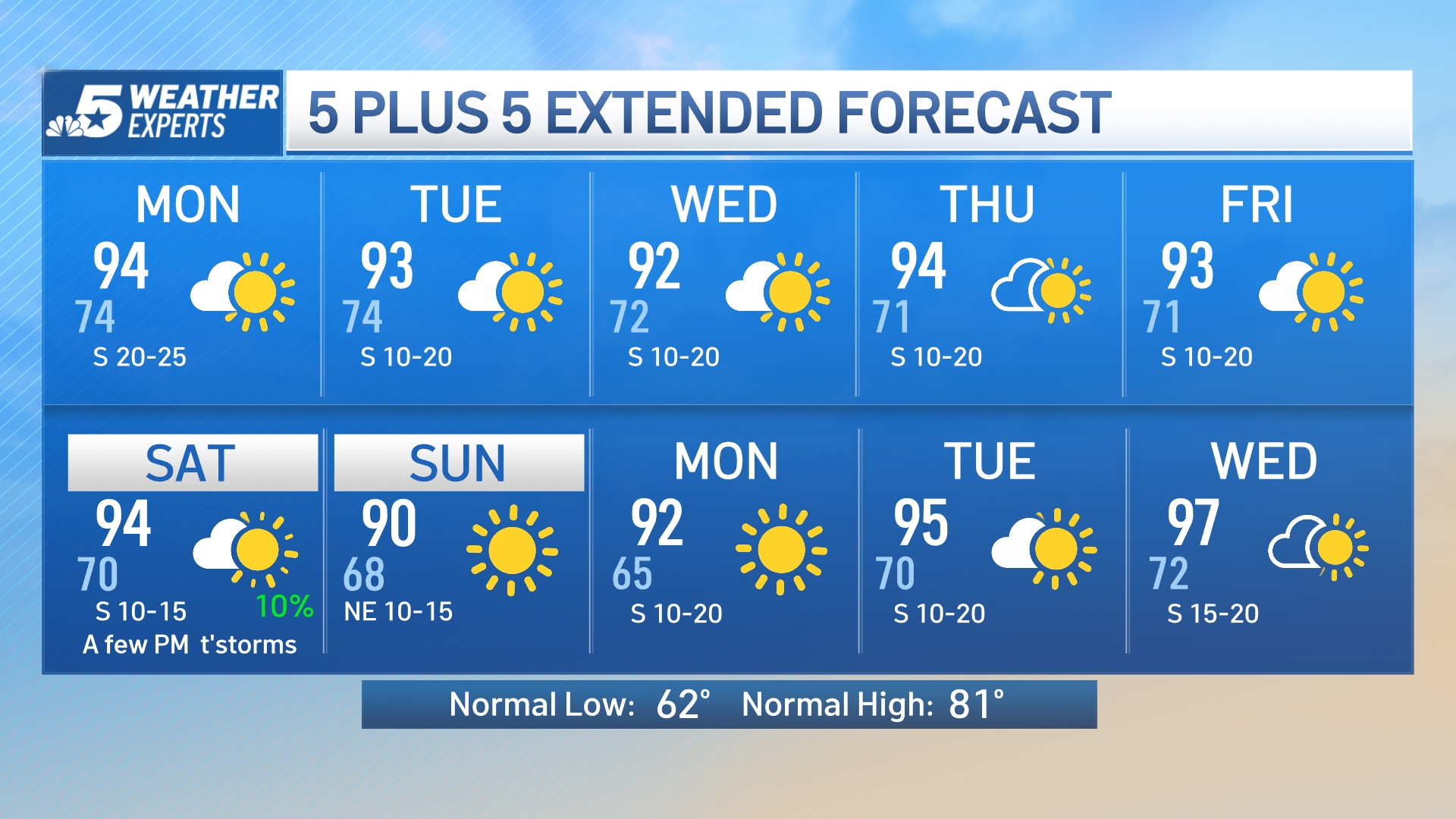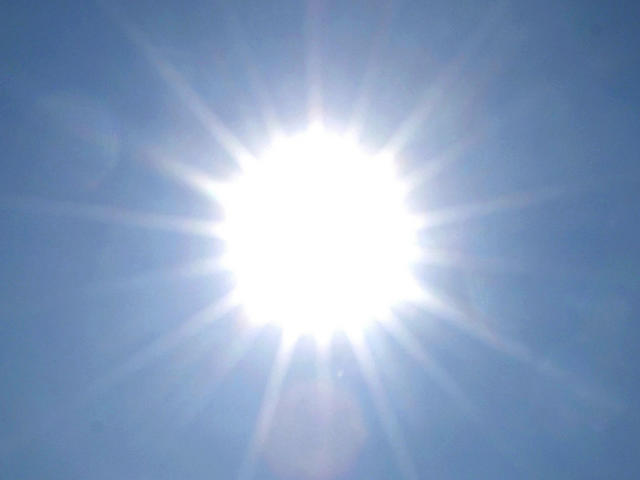As unseasonable heat blankets North Texans there's an early reminder on how to prevent heat-related illnesses like heat exhaustion and heatstroke.
Over Mother's Day weekend MedStar reported it treated 10 patients for heat-related illness, five at Mayfest and five elsewhere in its service area. Six of those patients required transportation to area hospitals. MedStar says so far in May its crews have treated 18 patients for heat illnesses.
According to MedStar, heat exhaustion occurs when the body loses large amounts of water and salt through excessive sweating, particularly through hard physical labor or exercise.
This loss of essential fluids can disturb circulation and interfere with brain function, MedStar said.
Get DFW local news, weather forecasts and entertainment stories to your inbox. Sign up for NBC DFW newsletters.
KNOW THE SIGNS OF HEAT EXHAUSTION AND HEAT STROKE
Symptoms of heat exhaustion may include muscle cramps, paleness, sweating, nausea, and vomiting. MedStar said children and the elderly are especially susceptible.
Heatstroke is a life-threatening problem that occurs when the body suffers from long, intense exposure to heat and loses its ability to cool itself. MedStar said some of the most common signs of heatstroke include confusion, vomiting, alteration in sweating, hot and flushed skin, rapid heart rate, decreased sweating, shortness of breath, decreased urination, increased body temperature, or convulsions.

Heatstroke is a medical emergency. If you or someone you know starts experiencing any of the symptoms above, immediately call 9-1-1.
HOW TO AVOID HEAT-RELATED ILLNESSES
While heatstroke and heat exhaustion are common this time of year, they can be prevented. Here are some of MedStar's tips for avoiding heat-related illnesses:
- Hydrate: Drink plenty of water during the day, especially if you are engaged in any strenuous activity. Sports drinks are a good choice if you're exercising or working in hot conditions, but water is a good way to hydrate as well.
- Ventilate: Stay in a place where there is plenty of air circulating to keep your body cool. If you are indoors and don't have access to air conditioning, open windows and use a fan.
- Cover Up: Wear light-colored and loose-fitting clothing to avoid absorbing the sun's light and trapping heat. Wear a hat to shield yourself from the sun, but once you feel yourself getting warm, remove any items covering your head that can trap heat close to your body.
- Limit Activity: Heatstroke can occur in less than an hour when you are participating in a strenuous activity on a hot day. If you feel yourself getting hot or light-headed, stop your activity and rest in a cool place out of the sun. Be sure to drink water or a sports drink before, during, and after any strenuous activity.
- Check on Loved Ones: The elderly are especially vulnerable to heat-related emergencies. Many elderly residents are not aware of how hot it may get in their residences. Call on older friends and family members regularly to assure they are doing okay.
HOW TO PREVENT HOT CAR DEATHS
Texas leads the nation in child hot car deaths, MedStar said. Some practical tips to prevent tragedy include not leaving children unattended in cars and making sure vehicles are secured to prevent a curious child from becoming trapped in the car on a hot day.
MedStar said if you have a car seat for a child, leave a stuffed animal in the car seat. When the child is in the seat, put the stuffed animal in the front seat as a reminder of the child in the back seat.
CONTINUING WEATHER COVERAGE
Stay up to date with the latest weather forecast from NBC 5's team of Weather Experts by clicking here or by watching the video below.

Be prepared for your day and week ahead. Sign up for our weather newsletter.
According to MedStar, using reminders or alarms on your phone can help you to remember to check for kids when you arrive at your destination.
If you find a child unattended in a hot car, alert authorities immediately and be prepared to take action based on the instructions from the 911 call taker, MedStar said.



